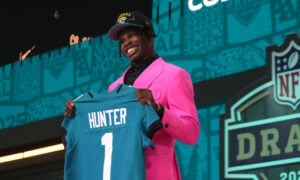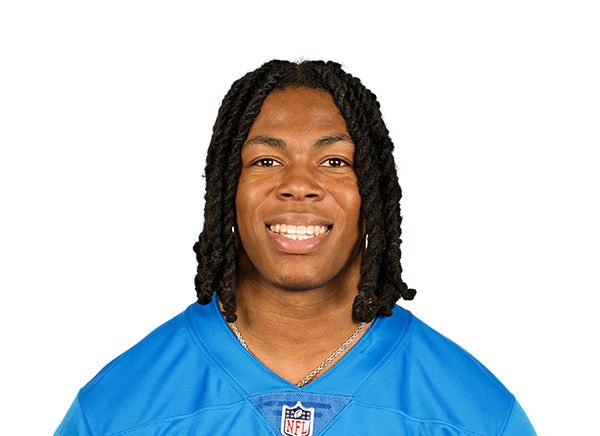Refining Processes: The Components of Dynasty Fantasy Football Team Management

Dynasty is a game of trial and error. There is no such thing as the “perfect strategy”. I can almost guarantee you will make mistakes. We are all relatively bad at this game we play, because predicting the future is hard. All we can really hope for is to be marginally better than our league mates when it comes to making decisions. This Refining Processes series is aimed at improving our decision-making processes through experimentation. Some avenues we explore may be completely fruitless, while others may yield useful results. Regardless of the outcome, there will still be many valuable lessons to learn along the way. It’s all part of the journey to becoming a better dynasty manager.
What are the Main Components of Dynasty Team Management?
To me there are three main components of dynasty team management. You may notice each of them are loosely related to roles that exist on real NFL teams. There is of course an overlap between each component but hopefully separating them out into different components makes it easier to identify spots where we can improve our processes.
1. Execution
Execution is all about effectively implementing strategy. You could know all the undervalued players, however that information becomes a lot less useful if you struggle to execute trades to acquire them.
2. Strategy
Strategy is simply just referring to your overarching team strategy. Your team strategy can evolve over time, in fact I would recommend you be flexible in your approach. How you balance depth, positional value and future value should be consistent with your overarching team strategy.
3. Valuation
Valuation is focused on understanding market dynamics and how players should be valued in the market with all the information you have at your disposal. Your view on player value can be shaped by virtually any data point you find useful, this includes any content you consume, stats you find, or film you watch.
Estimating What Components are Most Important
There is a lot of room for debate over which components are most important. My first instinct to answer this question is to test how each component contributes to success by temporarily removing it and seeing if the others can still function well. The better the remaining components perform without it, the less important the removed component might be.
For instance, imagine a dynasty manager who excels at valuing players and strategizing but struggles to execute trades or draft selections. Would they still be a good manager? No, of course not. At a bare minimum you need to have some baseline level of execution competence to make draft selections and trades.
In fact, you can’t be a complete zero in any component, because they all rely on each other in some way. Instead of imagining a component being completely removed, it’s more realistic to assume an average level of ability in the component we’re testing and assess its importance from there.
When we frame the test this way, three distinct dynasty manager archetypes emerge:
● Archetype 1: A manager who excels at making trades and implementing strategies.
(Strong execution and strategy, with average valuation skills.)
● Archetype 2: A manager who excels at understanding player values and execution.
(Strong execution and valuation, with average strategy skills.)
● Archetype 3: A manager with strong big-picture strategy and player valuation skills.
(Strong valuation and strategy, with average execution skills.)
The question then becomes:
Which archetype would struggle the most?
Or, put another way:
In which component is merely average most detrimental?
What Component Do I Think Matters Most?
The answer is subjective and open to interpretation. Here’s my perspective:
I believe Archetype 2 would face the greatest challenges. To me, strategy is by far the most important component. It shapes every decision you make and ultimately helps you build the best team possible. Strategy dictates the types of players you draft and target in trades, as well as how you plan for the future. If your strategy falls short compared to your league mates, you will likely struggle to keep your team competitive. I think being average at valuation or execution isn’t as damaging as being average at strategy. Valuation has never been easier with the abundance of resources that have proliferated online. Here at DLF, we provide trade values and ADP for reference, while other useful tools include FantasyCalc, KeepTradeCut, and DynastyDataLab. All of these resources make it easier to get a general sense of player values in the dynasty market, making valuation a less important component to dynasty success.
In my experience most managers possess solid execution skills, so being an average executor does not seem to be too detrimental. I think managers often mistake making the wrong moves or failing to act, for a lack of execution skills when it’s actually a failure in strategy. It is very hard to execute the right moves without a strategy in place.
Of course, this is just my perspective, and there is a valid case to be made for the varying importance of each component. The goal here is not necessarily to squabble over the importance of each component, rather it is to provide a framework for evaluating the key elements of dynasty management. Ideally, this helps managers develop their own perspective on assessing each component’s value, enabling them to allocate their time more effectively and focus on processes that align with their goals.
The Secret Fourth Component
Research is the secret fourth component of being a dynasty manager. It’s not a secret in the sense that no one knows about it, but rather in the sense that I had not previously mentioned its existence. Practically everyone engages in some form of research to improve their teams. Here, the value comes almost exclusively from your ability to ask the right questions and how you approach finding answers.
Research fuels improvement in all three of the other components and it is precisely what the Refining Processes series is all about. Dynasty, much like life, is an ongoing cycle of action and reflection. We make decisions, assess the outcomes, and refine our approach to improve over time.
Through this series, we will test theories and conduct in-depth investigations to uncover insights in this game of uncertainty. Hopefully, by the end of it, we won’t just become better fantasy managers but we will also improve our decision-making in real life.
- Refining Processes: Quantifying Subjectivity - April 3, 2025
- 1QB Dynasty Rankings Explained: Connor LaPlante - March 21, 2025
- Refining Processes: A Rule of Thumb for Valuing Players in Dynasty - February 28, 2025
























































